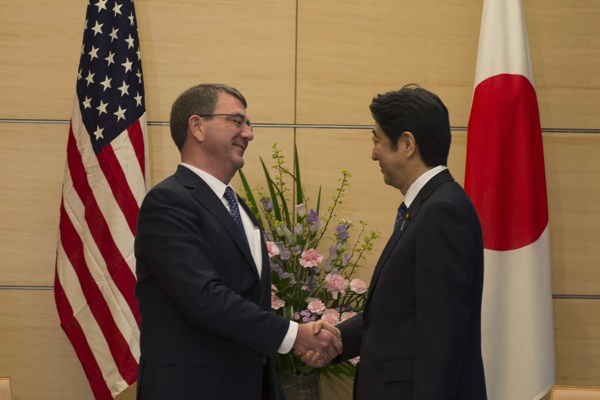Earlier this month, Ashton Carter concluded his first visit to the Asia-Pacific region since becoming U.S. secretary of defense. In Japan and South Korea, Carter delivered several speeches underscoring the region’s importance and explaining the logic of U.S. President Barack Obama’s “pivot” to Asia. Carter will return to visit Singapore and India in a few weeks, a sign of how pivotal a player he has quickly become in the administration’s policy of “rebalancing” America’s strategic priorities toward the region.
Carter’s recent trip, which began April 7 and ended April 12, aimed to reassure the two countries he visited, Japan and South Korea, as well as other U.S. allies and friends in the region, about the U.S. security commitment to the Asia-Pacific. Carter insisted that the Pentagon could achieve its goal of having a more broadly distributed, flexible and sustainable U.S. military presence in East Asia at a time when budgetary pressures, the wars in the Middle East and Ukraine, and other developments have called this objective into question.
He also offered some weighty security arguments on behalf of the Trans-Pacific Partnership, a region-wide free trade agreement augmented by additional economic cooperation. Yet having the U.S. defense secretary assume such a prominent stance on the economic dimension of the pivot risks negating recent administration efforts to de-emphasize the policy’s military elements.

